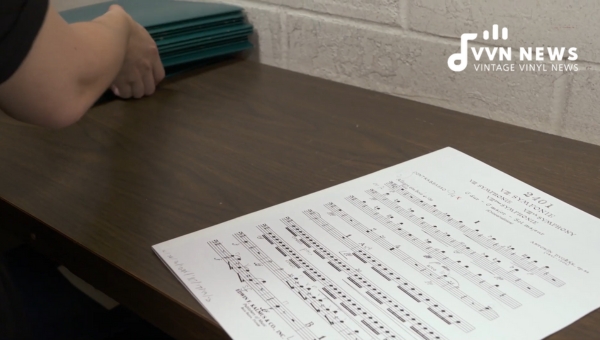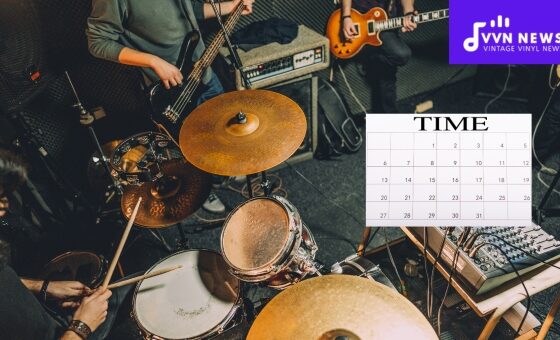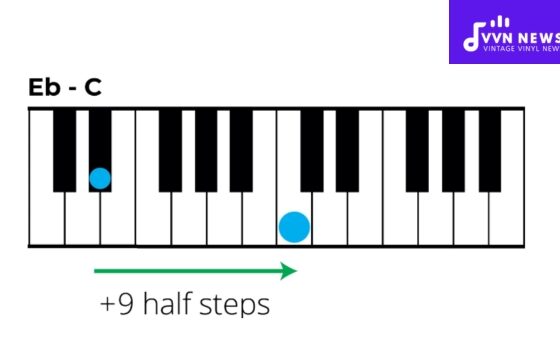As a music enthusiast, you may have often wondered, What does a music librarian do? It’s not a role you hear much about in daily conversation or one that immediately comes to mind when considering career options within the music industry.
Yet the contributions of these behind-the-scenes professionals are as instrumental to the field as the captivating performances that take center stage.
Music librarians are critical in supporting musicians, researchers, and general audiences.
Wearing multiple hats, they keep pace with the ever-evolving music landscape—in both analog and digital formats— balancing organizational skills and technological expertise.
This post will delve deeper into their world and uncover the various facets of being a music librarian.
What is a Music Librarian?
A Music Librarian is a professional librarian who specializes in music. Their roles typically involve acquiring, preparing, and preserving music materials such as scores, recordings, and digital media.
They often assist researchers and musicians in locating and interpreting music resources.
They may work in various settings like academic institutions, public libraries, performing arts organizations, or broadcasting companies.
Deep knowledge of music history, genres, and theory combined with typical librarian skills make them significant musicology figures.
Also Read: What Does A Music Therapist Do? [Skills, Career And Salary]
What Does A Music Librarian Do?
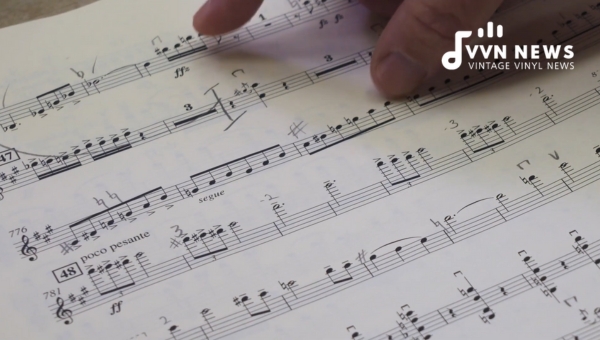
Music librarians are niche professionals specializing in storing, maintaining, and providing music resources. Imagine those countless pieces of musical scores, audio recordings, books on music theory, lyric directories, and even digital music files.
Public Engagement
Music librarians often engage with the public as ambassadors of musical knowledge, providing educational resources and outreach services.
They organize concerts or workshops, manage information booths at musical events, and create innovative ways to interact with the community.
They often collaborate with schools, local businesses, or other community organizations to promote their facilities. Essentially, they engage with music lovers regardless of age or experience and foster a learning culture.
Library Materials Collection and Expansion
Music librarians are responsible for curating the library’s music collection. They must keep abreast of the latest trends in music to ensure that current and relevant materials are available for patrons.
This could be acquiring albums from famous artists, ensuring sheet music for new scores is available, or accessing historical recordings.
Depending on their library’s direction and funding, they may also expand into genres outside mainstream tendencies, catering to alternative tastes in different demographics.
Library Materials Preservation
Preserving materials is another critical responsibility that librarians take up on their shoulders. This involves meticulous handling and storage of physical items like old records or manuscripts that might need special care due to their delicate nature.
Similarly, digital assets require regular upkeep through software updates or data migration tasks so that none of this shared history is lost or obsolete.
Providing Reference Services
A large part of a librarian’s work revolves around helping users access the information they need — this is where reference services come into play!
Librarians guide patrons through search strategies for finding specific works within the library’s catalog.
They can assist in locating ‘hard to find’ historical pieces, handle requests related to genealogy research, or provide context around a particular genre’s progression over time.
Cataloging Responsibilities
On some days, you’ll find them cataloging newly acquired materials – everything from adding details in database systems (maybe even creating an entire metadata scheme), updating indices as well as diligently cross-checking facts before actual shelving can occur.
This process could potentially involve soundproof rooms made designed explicitly for audio review.
Handling Acquisitions
They have to master the art of negotiation when dealing with vendors during procurement processes, minuscule as it might seem at first glance.
These decisions directly impact library budgets, thus necessitating wise financial practices, leading to keeping systems well-stocked and increasingly sought-after resources patrons love exploring.
It’s clear how varied complex roles and duties entailed librarians’ roles, showing us how much more involved we are.
Barely scratching the surface here, we value these professionals’ matchless expertise, preserving rich cultural heritage and educating future generations about our musical past.
Moving forward in times of constant change, accelerated technological advancements, and unforgiving competition, we’ve got to fight off dust anyone who’s even remotely attached to the perennial love story between humankind’s harmonious enchantment called “music.”
Also Read: What Does An Ethnomusicologist Do? 2025 [Careers & Salary]
How Can One Pursue a Career as a Music Librarian?
There are several vital steps to step into the captivating world of musical archiving and assistance.
Education: First, you need to pursue the right academic path. Most music librarian positions require at least a Bachelor’s degree in music or a related field, such as music history or composition.
Specialized Degree: Moreover, many roles require further specialization, often in the form of a Master’s degree in Library Science (MLS) or Library and Information Science (MLIS). This higher study focuses on resource management and can significantly bolster your prospects.
Additional qualifications: Besides these essential prerequisites, proficiency in more than one language is often appreciated due to the global nature of music.
Internships & Experience: Like many professions, being an effective music librarian involves specific practical skills. Hence, you should seek out relevant internships where possible. Experience working in libraries or managing extensive collections can further strengthen your resume.
Certification & Licenses: Having various certifications recognized by the Music Library Association (MLA) can also benefit. These validate your skills and commitment to the profession.
Music Librarian Career Paths:
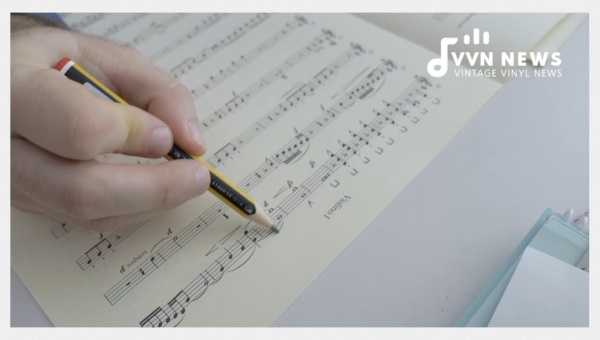
There are a variety of career paths available to individuals interested in becoming music librarians, each with its unique center of activity and sphere of impact. Here’s a deeper look into some of these avenues:
Industry-Related Music Librarians:
These professionals find their role within the music industry, working for music publishers, record labels, or broadcasting companies.
They manage everything from maintaining music libraries to licensing agreements for scores and recordings. Industry-related music librarians need a robust understanding of copyright laws and industry standards.
Librarians for Orchestras or Performing Arts:
As you might expect, these music librarians work specifically for orchestras or other performing arts organizations like ballet or opera.
They are tasked with acquiring, organizing, and maintaining the musical score libraries vital to these organizations’ performances.
Their work ensures smooth rehearsals and performances by providing easy access to well-organized and accurately notated scores.
Special Collections Music Librarians:
Special collections music librarians often find themselves in charge of particularly valuable or rare collections.
These could include historical sheet music, scarce first-edition prints, and autograph manuscripts from notable musicians.
Here, preserving the longevity of these cherished pieces forms a central part of their responsibility.
Public-serving Music Librarians:
These librarians serve at public libraries, where they facilitate patron access to varied forms of music materials.
Their day-to-day tasks typically involve assisting visitors in accessing the physical or digital resources they require while creating an enriching environment where patrons can discover new genres or musicians.
Music Librarians in Academic Settings:
Often housed within university libraries, these professionals assist students and faculty members in accessing necessary resources that aid their study or teaching efforts.
From offering personalized research assistance to guiding users in navigating vast online databases – they do it all!
Regardless of which career path one takes as a music librarian, it is an ever-evolving profession that uniquely unites the spheres of music appreciation with skillful administration.
Though diverse in their settings and responsibilities – one common thread runs through them all – dedication towards making the world’s vast music archive more accessible.
Also Read: Music Business Jobs In 2025 [Education, Skills & Salaries]
Requirements for Doing a Job as a Music Librarian
Your melodic passion and organizational understanding are essential for success in this musical career.
Yet these alone aren’t enough. Budding music librarians must meet a range of requirements to synchronize smoothly with this dynamic role. Let’s explore those now.
Education Requirements
The foundation stone of your journey as a music librarian is your education.
Different roles have varying prerequisites, with some requiring an in-depth degree of knowledge and others demanding a general familiarity paired with other essential skill sets:
- Doctorate: A Doctoral degree in musicology or library science can significantly boost career prospects for individuals aiming for top-tier institutions or specialization-based positions.
- Master’s Degree: A Master’s degree in Library Science (MLS), especially accredited by the American Library Association (ALA), is often required by many employers.
- Bachelor’s Degree: Those who hold a Bachelor’s degree in music or library science can leverage numerous opportunities within the field.
- Associate Degree/Diploma: Some entry-level positions allow enthusiasts to start their journey with an Associate degree or Diploma.
Necessary Training & Experience
Beyond formal education, practical experience is highly valued in this field. Several internships, fellowships, and volunteer programs linked to library services allow for hands-on training—a priceless addition to any resume.
On-The-Job-training: Often offered by employers explicitly based on the job role—ranging from cataloging best practices to the latest technologies—this type of training complements any pre-existing knowledge and fine-tunes skills to meet the unique needs of your workstation.
It should be noted that familiarity with the musical sphere—be it through formal training, self-education, or personal experience—is given high priority when considering candidates for this position.
Certifications
A prospective music librarian must possess a broad skill set to excel. The Music Library Association provides comprehensive recommendations and guidelines on the critical areas of competency that include:
Knowledge of Music
It’s self-evident but crucial – a deep enthusiasm for and understanding music is paramount. This could cover various genres and periods, including classical, jazz, popular, and world music.
Knowledge of Copyright Issues
As custodians of many kinds of copyrighted material, music librarians must be familiar with copyright laws – an understanding invaluable in guiding musicians and researchers alike.
Ability to Manage and Lead
Music libraries can be complex beasts. Leading a team and keeping them under control requires strong management skills.
Research Support and Instructional Skills
A significant part of the role involves providing instruction or support to individuals conducting research. Superior communication skills are a must!
Resource Identification, Organization, and Maintenance Skills
Locating specific materials for users calls for top-level organizational skills combined with an understanding of library maintenance protocols.
Access Services Skills
Facilitating access to these treasures (both physical and digital) is another critical component of this profession. Understanding user queries & meeting them with suitable resources can be exceptionally fulfilling!
Technology Skills
Today, the role is incrementally digital. It’s thus crucial for music librarians to stay ahead with the latest technologies related to information retrieval & preservation.
Knowledge of Archival Standards and Practices
Preservation being integral, one needs to understand the methodologies involved in maintaining & conserving these resources.
Thus, these key areas play a concert-like orchestra covering every essential requirement designed by the Music Library Association.
Whether you’re a seasoned muse whisperer or new to this track – maintaining this symphony will surely strike the right chord.
What is the salary range for a Music Librarian?
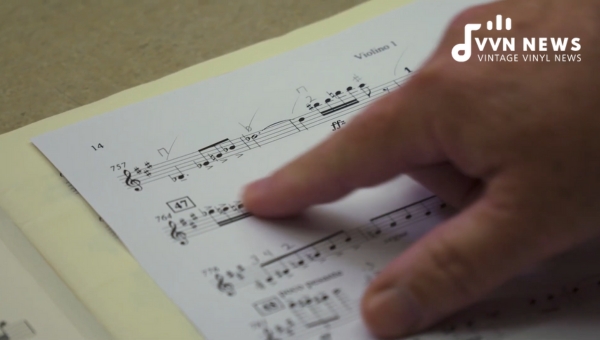
The salary of a Music Librarian can vary significantly based on factors like location, experience, and size of the organization.
According to data from Salary.com, as of September 2021, the average annual pay for a music librarian in the United States lies between $42,790 – $57,990.
However, with additional qualifications or significant experience in the field, this could rise to the upper echelons— well above $67,539 annually.
FAQs About Music Librarian
What exactly does a music librarian do?
A music librarian is responsible for managing, organizing, and maintaining an extensive collection of music resources and ensuring these resources are readily accessible.
What kind of background do you need to become a music librarian?
The role typically requires a postgraduate degree in library science, a solid understanding of music theory, genres, history, and, more importantly, familiarity with physical and digital music databases.
Are there different types of Music Librarians?
The role can vary depending on the setting – public libraries, academic institutions, orchestras or performing arts organizations, television and radio stations, commercial music publishers, etc.
Do Music Librarians need any certification or license?
While no specific certifications/licenses are required to become a Music Librarian, recommendations from the Music Library Association (MLA) are often sought after alongside formal education.
How necessary is technical knowledge for being a Music Librarian?
Immense! In addition to understanding print materials, they must also be versed in the latest technology for cataloging and preserving digital media assets like online databases, streaming platforms, etc.
Conclusion
To wrap up, being a music librarian is more than simply maintaining a music library.
With the perfect synchronization of administrative capabilities, digital skills, and musical expertise, these professionals add depth and context to the constantly evolving world of music.
They pave the way for many in their quest for knowledge about different genres or historical periods and contribute to enriching performances by aiding performers from backstage.
So the next time you enjoy a musical symphony or research music history, take a moment to appreciate this vital and often subtle profession.
